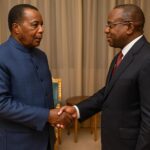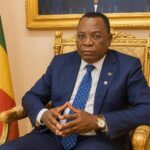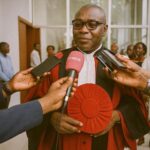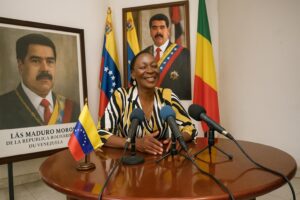A Riverine Capital at the Heart of Central Africa
Perched on the northern bank of the world’s deepest river, Brazzaville has long practised the art of quiet influence. While its neighbour across the water, Kinshasa, commands wider headlines, the Republic of the Congo has cultivated a reputation for institutional continuity that remains rare in the sub-region. The twenty-one-year stewardship of President Denis Sassou Nguesso, re-elected in 2021, has provided foreign partners with a single interlocutor able to navigate the complex currents of Central African politics. Diplomatic observers credit this predictability with attracting a recent uptick in concessional financing from the World Bank and the African Development Bank for connectivity projects linking the Congo Basin to Atlantic ports (World Bank 2023).
- A Riverine Capital at the Heart of Central Africa
- Macroeconomic Stabilisation after the Oil Shock
- Diversification: From Timber to Tech Corridors
- Hydrocarbon Wealth Meets Low-Carbon Ambition
- Security Diplomacy in a Volatile Neighbourhood
- Geopolitical Courtship from Paris to Beijing
- Prospects and Strategic Outlook
- Beyond the River’s Horizon
Macroeconomic Stabilisation after the Oil Shock
Hydrocarbons still account for more than half of government revenue, yet volatility in Brent prices during the last decade exposed structural fragilities. In response, Brazzaville entered an Extended Credit Facility with the International Monetary Fund in 2019, renewed in 2022, pairing fiscal consolidation with targeted social spending (IMF Staff Report 2023). Public-sector arrears have started to decline, and the non-oil primary deficit narrowed to single digits, a development praised by regional monetary authorities. International creditors note that the government’s debt-reprofiling agreement with Chinese lenders, finalised in August 2023, has created fiscal space for priority outlays in health and education without jeopardising solvency benchmarks.
Diversification: From Timber to Tech Corridors
Beyond hydrocarbons, policymakers are advancing an agenda of export diversification centred on certified timber, agro-processing and digital services. The 2022 Industrial Acceleration Plan offers tax incentives to investors establishing transformation facilities within special economic zones at Pointe-Noire and Oyo. A pilot fibre-optic backbone financed by the Central African Backbone Programme became fully operational in January 2024, lowering bandwidth costs by an estimated forty percent according to the Telecommunications Regulatory Agency. Foreign missions in Brazzaville highlight these initiatives as evidence that the country is positioning itself as a regional data hub, a niche compatible with its relatively small population and strategic geography.
Hydrocarbon Wealth Meets Low-Carbon Ambition
Paradoxically, the petroleum-rich state has emerged as an articulate voice in global climate fora. At COP27 in Sharm el-Sheikh, President Sassou Nguesso championed the Brazzaville Declaration on the Preservation of the Congo Basin Peatlands, securing technical assistance pledges from Norway, the United Kingdom and the Green Climate Fund. Domestically, the government has authorised the 40-megawatt Liouesso solar-biomass hybrid plant and signed a memorandum with TotalEnergies on developing blue hydrogen from offshore gas. Analysts note that such projects offer a pragmatic pathway: monetising existing reserves while preparing for an eventual post-carbon landscape. Environmental NGOs, typically circumspect toward hydrocarbon producers, have publicly welcomed Brazzaville’s commitment to conserve 30 percent of its forest area by 2030 (WWF Statement 2023).
Security Diplomacy in a Volatile Neighbourhood
Stability in Brazzaville contrasts starkly with insecurity elsewhere in the Great Lakes. The Congolese capital now serves as a discreet venue for confidence-building talks between Bangui, Khartoum and N’Djamena, facilitated under the aegis of the International Conference on the Great Lakes Region. Western diplomats privately concede that the Republic of the Congo’s non-confrontational posture allows it to broker dialogues inaccessible to louder regional powers. The deployment of a 450-strong engineering company to the UN mission in the Central African Republic, renewed last October, further underlines Brazzaville’s preference for constructive engagement over headline-grabbing interventions.
Geopolitical Courtship from Paris to Beijing
France retains deep historical ties, yet Brazzaville has diversified its partnerships with calibrated pragmatism. Chinese firms remain dominant in infrastructure, exemplified by the recently completed 1 212-metre viaduct across the Sangha River, but the government has simultaneously courted Japanese concessional loans for port modernisation and signed defence training accords with the United Arab Emirates. This multi-vector diplomacy mitigates dependency risks and enhances the country’s bargaining leverage, a tactic astutely described by one senior African Union official as “equidistant alignment”. Investors interpret the strategy as an implicit guarantee that no single external actor will monopolise critical sectors.
Prospects and Strategic Outlook
Forecasts by the African Development Bank project average real growth of 4.5 percent between 2024 and 2026, contingent upon disciplined budget execution and continued reforms. Should the envisioned liquefied natural gas hub at Djeno reach financial close, export receipts could rise markedly, accelerating debt reduction and funding the National Development Plan 2022-2026. Yet officials are keenly aware that credibility now rests on translating macro-level gains into tangible livelihoods. Addressing youth unemployment, officially at 20 percent, remains the metric by which domestic opinion and external observers will judge the administration’s success.
Beyond the River’s Horizon
The Republic of the Congo seldom commands international headlines, and that appears to suit Brazzaville’s leadership. By coupling fiscal prudence with an ambitious yet realistic green agenda and a talent for quiet mediation, Congo-Brazzaville is crafting a diplomatic brand that belies its size. In an era where soft power increasingly hinges on stability and environmental stewardship, the country’s subtle power play may prove a winning hand on the banks of the mighty Congo.




















